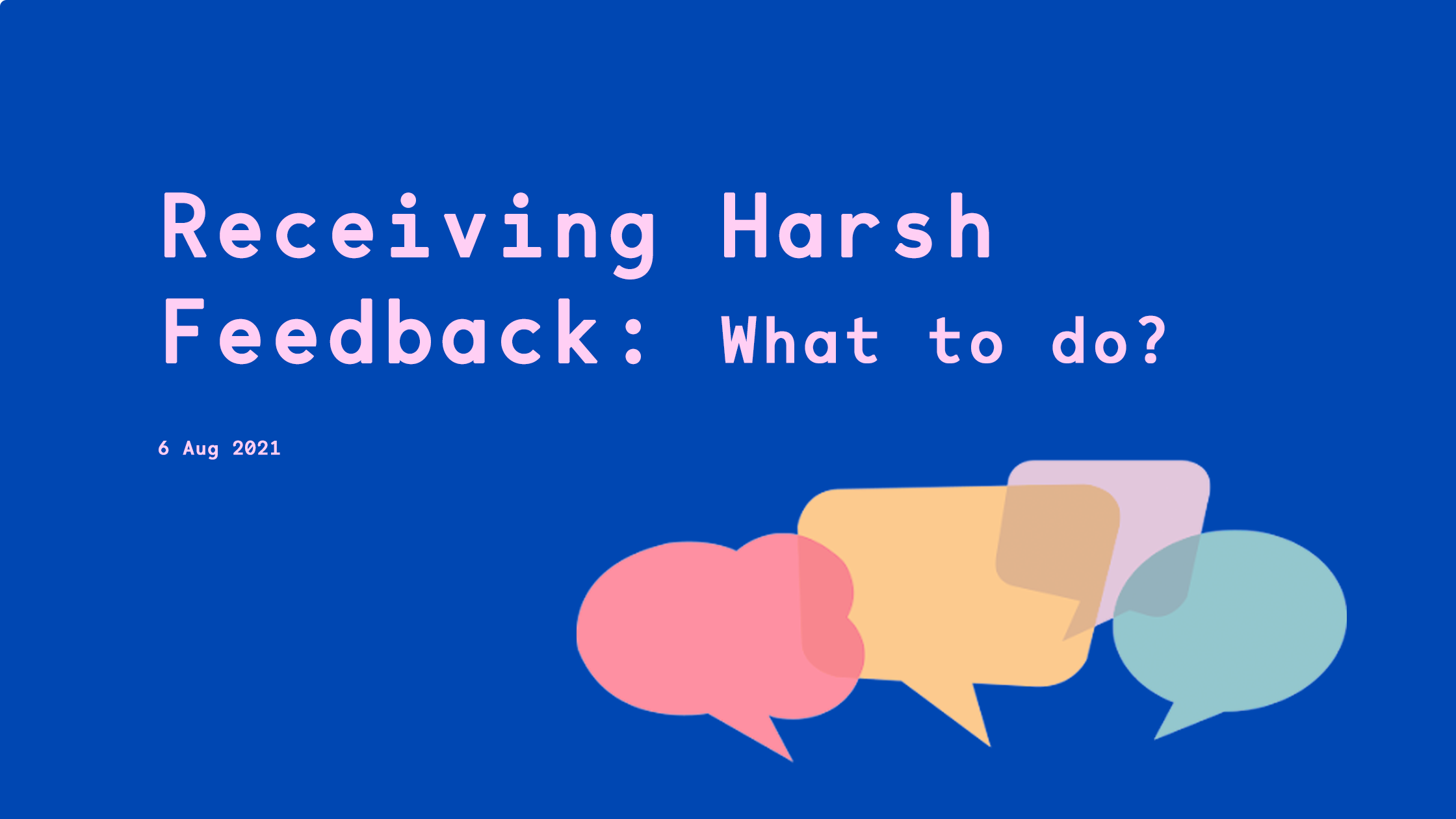
Receiving Harsh Feedback: What to do?
Sometimes, it needs to be said.
Although no one ever “looks forward” to being told their work isn’t 100% perfect, having this feedback out there is pretty important because it allows you to hear what people’s point of view are that can help you make some improvements. They aren’t saying that you personally are a failure, just that your work could be improved. If no one ever told an athlete how they could be better, and helped them train, how could they ever make it to the Olympics?
Make sure it’s crystal clear.
When you receive negative feedback, it can be upsetting (or annoying), but you should remain calm and try to get as much information as you can on it. Having your manager say “It’s not quite there yet” without any other tips isn’t helpful, so ask questions that can help make the feedback more specific and give you something tangible you can start working on.
It’s a second opinion.
If you or your team made the piece of work, of course, it would make sense to you. But sometimes, someone that wasn’t involved in the creation may find aspects of the work confusing- so feedback can help with these blind spots.
However, sometimes your manager isn’t the intended audience, so the fact that they DON’T get it might be a good thing. In that case, get a third or fourth opinion from people that fit the demographic.
Inhale, Exhale and come back to it.
This feedback is (hopefully) coming from a good place, and sometimes you might get angry as an initial reaction. If that’s the case, you shouldn’t be responding while your head is still spinning- step away and come back after you’ve had a chance to think. If this is an in-person conversation, you could thank them for their feedback, and say that you’d like some time to reflect.
Writing down your thoughts, re-reading, and removing anything that isn’t helpful usually helps. But, you should stick to the facts and keep it short. Once you’re done, you can either send it off via email or convert it to even more concise talking points for your next face-to-face/call.
Talk to someone
We are all human, and as such, we need emotional support. The most valuable thing you could do is chat with a trusted colleague, counsellor, family/friend, partner, or mentor. Try to tell them what’s happened with as little bias as possible and hear what they have to say. Sometimes having someone you trust agree with the feedback is enough to make you realise they were right and that it wasn’t personal.
Not all advice is good advice.
While it may seem redundant to say this right after a point about seeking out advice, sometimes the feedback is just someone’s personal opinion, rather than something backed by research and strategy in mind.
Take in what they’re saying, but if you can confidently explain why you think what you’ve done works and back it up with facts, then don’t be afraid to respectfully explain why.
Wrapping things up,
Getting feedback is an inevitable part of being in the workforce. Whether it’s supportive or constructive, what matters most is learning how to respond to it. There are some great training courses out there, both free and paid, floating around on the internet and in books- give it a go!
Our Marketing & Comms Executive Michael Saliba recommends the (paid) LinkedIn Learning course ‘Giving & Receiving Feedback‘ by Gemma Leigh Roberts. Or this (free) much shorter video by Harvard Business Review!

